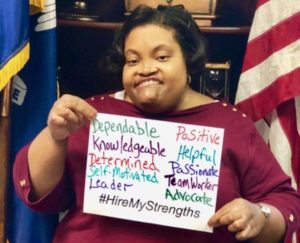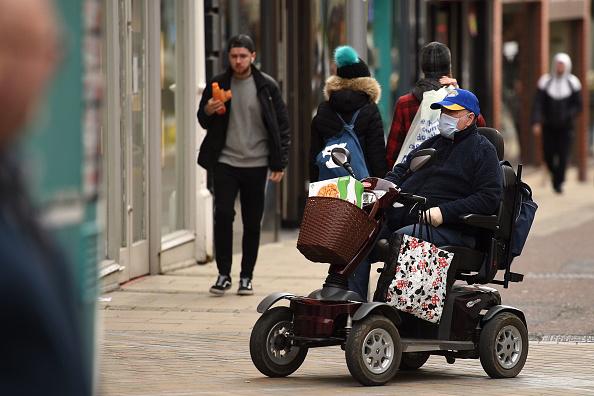
Phone: 212 520 1686
Email: info@yourcpf.org
COVID-19 and It’s Impact on the CP Community
On Saturday, March 28th, disability rights advocate April Dunn died from complications of the coronavirus at age 33. She lived with cerebral palsy and obsessive-compulsive disorder. After facing difficulties attaining a college education, Dunn worked with Louisiana lawmakers to enact Act 833 in 2014, which offers alternative ways for people with disabilities to obtain a high school diploma. Her work in the state legislative led to an additional law, passed in 2016, that expanded educational opportunities for people with disabilities.

Dunn has worked tirelessly to promote and improve the lives of people with disabilities. It is a tragedy to have lost her too soon, especially as she had just begun her career as a government staffer and disability rights fighter. We can only fathom what more greatness she could’ve achieved if her life wasn’t cut short.
The New York Times mentioned in her obituary that during the ride on the ambulance, Dunn asked her mother an urgent request: “Mommy, when you come by, be sure to bring my cell phone and my notepad. I still need to wish everyone a happy birthday.” Even during the last moments of her life, Dunn wanted her loved ones to know she was thinking of them, putting their needs in front of hers.
Over the past few months and weeks, COVID-19 has taken the lives of too many loved ones all around the world. It especially hurts to hear about the deaths of those in our very own CP community, as well as the overall disability community. It’s okay to feel saddened and even defeated during times like this.
News organizations have repeatedly reported that in some states, people with cognitive and intellectual disabilities — including Down syndrome, cerebral palsy, and autism — are a lower priority for lifesaving treatment. As hospitals across the country face rapid shortages of medical supplies, such as ventilators, doctors have to make difficult choices for whose lives to save first. Oftentimes, people with a greater likelihood of survival and positive outcomes receive access to limited resources. In other words, if you have a preexisting condition, there is the concern that you will receive proper care
Although the scarcity of medical supplies calls for tough decisions, it is not okay that people with disabilities are deemed less worthy of medical care simply because they are disabled or chronically ill. America has an ever-so complicated history of eugenic, namely viewing the disabled community as a threat to the overall productivity of society. In the 30 years since the passing of the Americans with Disability Act, we have made monumental strides in steering away from that entrenched thought pattern and viewing people with disabilities as equals. However, as the pandemic continues to spread, the same caliber of principle should be applied when treating infected patients with disabilities and chronic illnesses.
We extend our deepest condolences to the family, friends, and colleagues of April Dunn. Regardless of whether you personally knew Ms. Dunn, her loss creates a ripple effect of mourning within our tight-knit CP community. During these tiring and unprecedented times, it is more important than ever before to practice both mental and physical wellness. We are (virtually) here for all of you.
***
Blog written by Sarah Kim





